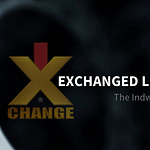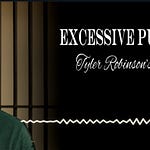It is with deep honor and personal reverence that I dedicate this reading of the Declaration of Independence to my grandfather on my grandmother’s side, Samuel Chase—a patriot, jurist, and signer of this very document.
His unwavering commitment to liberty, justice, and the founding principles of our nation lives on not only in the ink of his signature but in the legacy he left for generations to come. As I give voice to the words he helped bring to life, I do so with gratitude for his sacrifice and conviction, and with a renewed resolve to uphold the freedoms he so fiercely believed in.
Thank you, grandpa, for your loyalty to our nation and the living God!
The Declaration of Independence, though a political document, resonates deeply with biblical values that shaped the worldview of many of America’s Founding Fathers. At its core, the Declaration affirms that all men are created equal and endowed by their Creator with certain unalienable Rights—a truth that mirrors Genesis 1:27, where humanity is described as being made in the image of God (imago Dei). This foundational belief in the divine origin and dignity of every person undergirds both the biblical storyline and the Declaration’s moral authority.
The document’s assertion that rights such as life, liberty, and the pursuit of happiness are not granted by governments but by God.
The declaration aligns with Scriptures, such as Psalm 139:13-14, which celebrate the sacredness of life from the moment of conception. The idea that liberty is a God-given right finds support in passages like Galatians 5:1—“It is for freedom that Christ has set us free.” The pursuit of happiness, while not a biblical phrase, reflects the biblical concept of shalom—a Holy peace and flourishing that comes from living in alignment with God’s design for all of humanity, not just Americans.
Moreover, the Declaration’s emphasis on government by consent and the right to resist tyranny mirrors biblical principles of just leadership and accountability. In Exodus 18:21, Moses is instructed to appoint leaders who are capable, God-fearing, trustworthy, and just—qualities that reflect the Declaration’s call for governance that serves the people, not oppresses them. Romans 13 affirms that God establishes all authority, but it also implies that rulers are accountable to Him and must govern righteously.
Finally, the Declaration’s appeal to “the Supreme Judge of the world” and “firm reliance on the protection of divine Providence” reveals a profound dependence on God’s justice and sovereignty.
This language reflects the biblical conviction that God is not only Creator but also the ultimate arbiter of right and wrong, and that human freedom must be exercised under His moral law, the Holy Word of God.
In sum, the Declaration of Independence is not a theological document, but it is undeniably shaped by a biblical worldview—one that affirms human dignity, divine justice, and the sacred responsibility of both rulers and citizens.
For more Biblically based media and essays on governance, visit the Identity Politics Series HERE.












